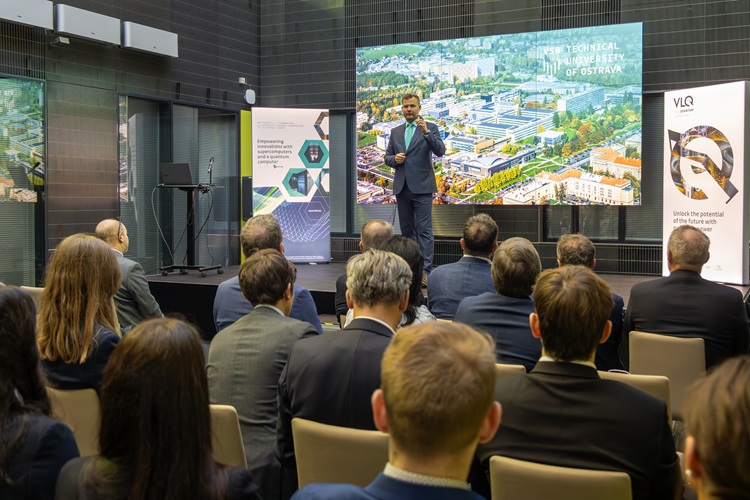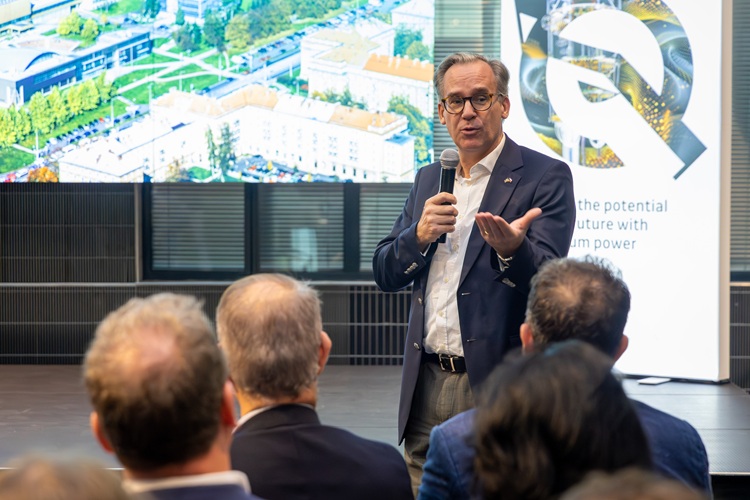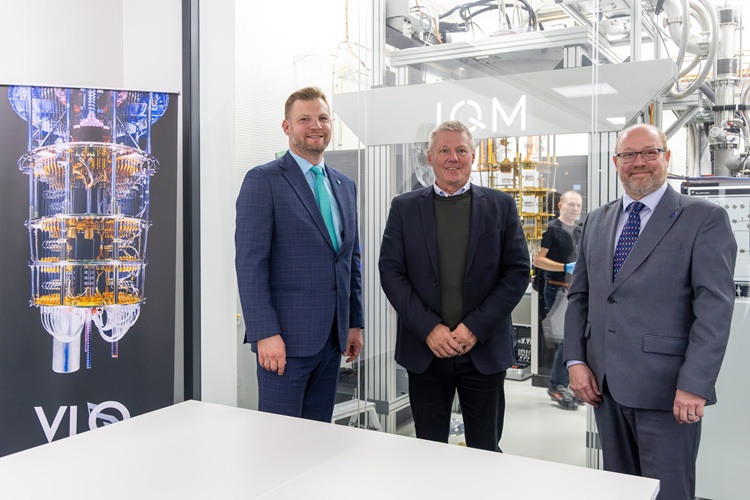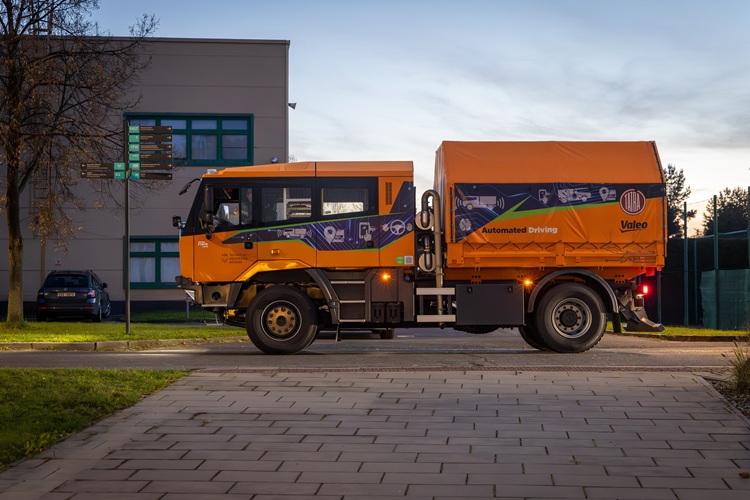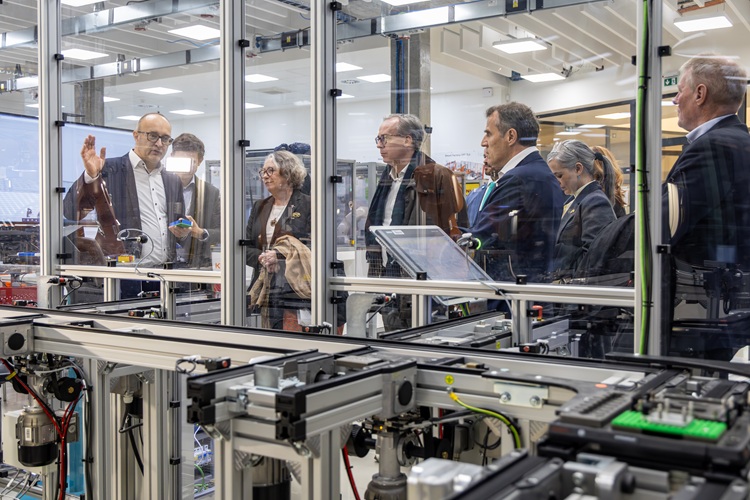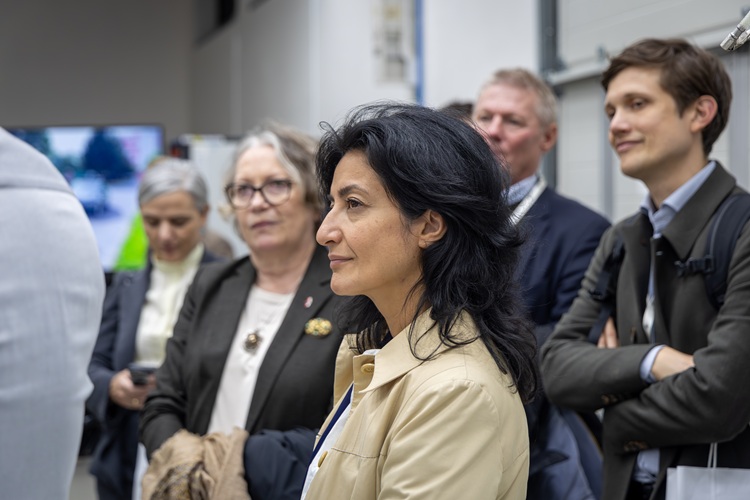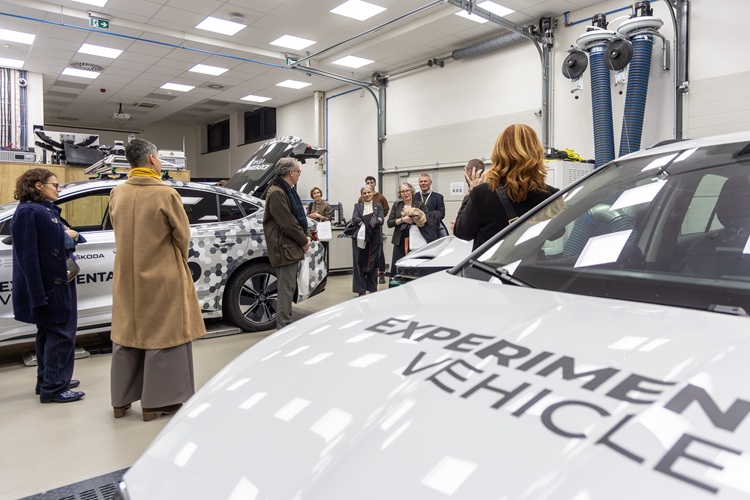They toured state-of-the-art research facilities and met with university leadership, researchers, and students.
“It is an honor for us that the organizers chose our university, allowing us to showcase our most advanced laboratories to representatives of European countries and to discuss the challenges of regional transformation in which we are actively involved,” said Igor Ivan, Rector of VSB – Technical University of Ostrava.
The first part of the ambassadors’ visit took place at the IT4Innovations National Supercomputing Center, where the rector presented the university in an international context. The program also included a meeting with students from the Faculty of Economics, who had the opportunity to ask the ambassadors questions and share their perspectives.
The ambassadors showed great interest in the researchers’ work, technological innovations, and projects of European significance. Their attention was drawn not only to the recently launched VLQ quantum computer but also to the Smart Factory Lab with industrial robots and the Mobility Lab, which focuses on advanced driver-assistance systems and autonomous driving technologies for cars and industrial vehicles. The diplomats also visited the Centre for Energy and Environmental Technologies (CEET), which develops technologies and materials for low-carbon and sustainable energy production, in line with the principles of the circular economy.
The visit to the Ostrava region was organized by the Danish Embassy on the occasion of Denmark’s Presidency of the Council of the European Union. “Since Denmark currently holds the EU Presidency, it is important for us to be present not only in the capital but also in the regions where European policies directly affect the daily lives of people, businesses, and communities. This visit demonstrates that Europe works as a team – Team Europe – and that together we can find solutions that promote a fair and sustainable transformation,” explained Søren Kelstrup, the Danish Ambassador to the Czech Republic.
One of the main goals of the Danish EU Presidency is to promote transformation that reduces social and economic inequalities. The Presidency aims to foster new opportunities for a cleaner planet and a more competitive Europe. Therefore, the discussions also touched on the EU Just Transition Fund, which serves as a mechanism to support regions undergoing economic transformation, such as the Moravian-Silesian Region.
During their visit, the diplomats focused on how local stakeholders contribute to shaping European policy and how decisions made at the EU level influence the everyday lives of citizens as well as industrial operations in regions undergoing significant economic transformation. The visit of European diplomats to the Moravian-Silesian Region aimed to highlight both the diversity of challenges Europe faces and the unity with which they are addressed for the benefit of its citizens and businesses.
Photo gallery:
